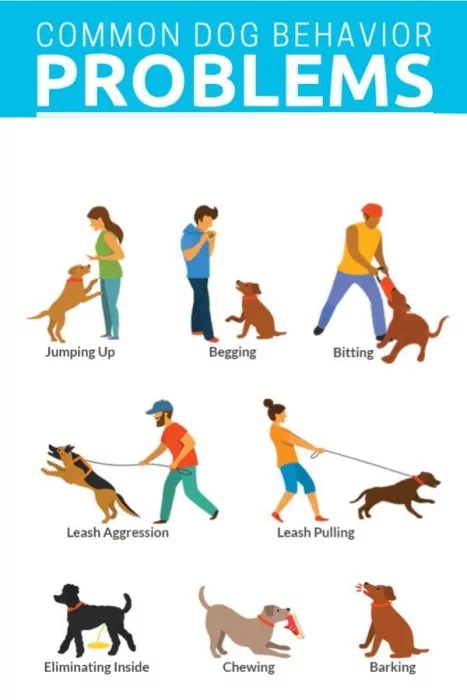Unlock Your Pet dog's Prospective: Proven Canine Training Techniques for Success
Efficient canine training is a nuanced procedure that pivots on understanding canine actions and using clinically backed strategies. By incorporating favorable reinforcement, establishing clear commands, and prioritizing socializing, canine owners can cultivate an effective connection with their animals.
Recognizing Pet Habits
Recognizing pet dog actions is important for reliable training and promoting a positive partnership between pets and their owners. A thorough grasp of canine body language, vocalizations, and social communications is vital for acknowledging their demands and emotions. Dogs interact primarily through non-verbal cues; as an example, a wagging tail may suggest excitement, while pinned ears can signify anxiety or entry.

Moreover, environmental variables play a substantial role fit a canine's habits. Modifications in routine, brand-new surroundings, or the visibility of unknown people can cause stress and anxiety or stress and anxiety in pets. Identifying these triggers allows owners to mitigate damaging reactions and establish ideal training strategies.
Eventually, a deep understanding of pet dog habits lays the structure for successful training techniques, improving both habits and the total bond in between the pet and its proprietor. Dog training. This understanding is vital for fostering a well-adjusted, delighted canine friend
Favorable Support Strategies
Efficient training relies heavily on positive support strategies, which have actually been shown to produce significant cause forming desired actions in pets. This strategy involves awarding a pet for showing particular actions, therefore increasing the likelihood that these actions will be duplicated. Benefits can take different types, consisting of deals with, praise, toys, or playtime, depending upon what motivates the private pet.

It is vital to slowly terminate benefits as the dog learns the habits, transitioning to periodic support. This method preserves the habits over time while stopping reliance on constant benefits. By concentrating on positive reinforcement, instructors can grow a trusting relationship with their pet dogs, advertising a cooperative and healthy training environment that improves overall obedience and efficiency.
Developing Constant Commands
A fundamental aspect of effective pet training is the facility of regular commands. Consistency in commands is crucial for reliable communication in between the canine and the instructor. When commands are uniform, pets discover to associate details words with wanted actions, which accelerates the assistance dog training courses training procedure and improves understanding.
To develop constant commands, it is necessary that all member of the family use the same terminology and gestures. As an example, if someone uses "sit" while an additional states "take a seat," it can develop complication for the pet. Select clear, unique words for commands and make certain every person included in the pet's training adheres to these choices.
Enhance commands with frequent technique, guaranteeing that the dog receives adequate possibilities to respond properly. When a pet dog effectively adheres to a command, immediate favorable support ought to adhere to.
Finally, be client. Developing regular commands takes time and initiative. With devotion and quality, you will certainly help your canine create a solid understanding of expectations, eventually causing a mannerly buddy.
Socializing and Direct Exposure
Mingling a dog is essential for promoting a well-adjusted and confident companion. This procedure includes subjecting your dog to a range of atmospheres, people, and various other animals to establish their social abilities and adaptability. Early socialization, preferably in between the ages of 3 to fourteen weeks, is important, as it lays the groundwork for a dog's future habits.
During socializing, goal to offer positive experiences in different settings, such as parks, active roads, and homes with other pet dogs. Introduce your canine to numerous stimuli, including audios, views, and scents, making sure that each encounter is satisfying. This direct exposure assists alleviate worry and stress and anxiety, paving the means for an extra resilient pet dog.
Engaging in controlled team look at here now play sessions with various other pets can additionally boost social skills, showing your pet suitable interactions and limits. Focusing on socializing will substantially add to your pet dog's general joy and behavior throughout their life.
Conquering Common Educating Obstacles

Dogs might struggle to concentrate in unfamiliar or active settings. Slowly desensitize your dog to disturbances by beginning training in a quiet setting and slowly introducing even more stimuli as they become skilled.
In addition, behavior concerns like leaping or too much barking can come to be discouraging. Address these by instructing different actions, such as sitting calmly when greeting guests. Uniformity and patience are crucial; enhance desired behaviors regularly and avoid abuse, which can lead to complication.
Lastly, recognize that each pet is special, and training timelines might vary. Tailor your strategy to your dog's specific needs, and seek expert support if essential. With willpower and the appropriate methods, overcoming these difficulties can result in a well-trained, delighted canine buddy.
Conclusion
Finally, opening a more info here pet dog's prospective requires a thorough method that integrates an understanding of canine actions, the application of favorable support methods, and the facility of constant commands. Early socializing and exposure to diverse settings further boost a canine's versatility and self-confidence. By resolving common training obstacles with customized strategies and persistence, a harmonious and participating connection between canine and handler can be promoted, ultimately leading to a well-behaved companion efficient in growing in various scenarios.
Effective pet dog training is a nuanced procedure that pivots on understanding canine habits and using clinically backed methods.Recognizing pet dog behavior is vital for reliable training and fostering a favorable relationship in between canines and their owners.Efficient training depends heavily on positive support methods, which have actually been shown to generate substantial results in forming desired actions in dogs. When commands are consistent, pet dogs learn to associate certain words with wanted behaviors, which accelerates the training process and enhances understanding.
In conclusion, unlocking a pet's potential requires a comprehensive technique that includes an understanding of canine behavior, the application of favorable reinforcement methods, and the establishment of constant commands.
Comments on “Dog Training Charlotte NC: Your Course to a Well-Behaved Dog”